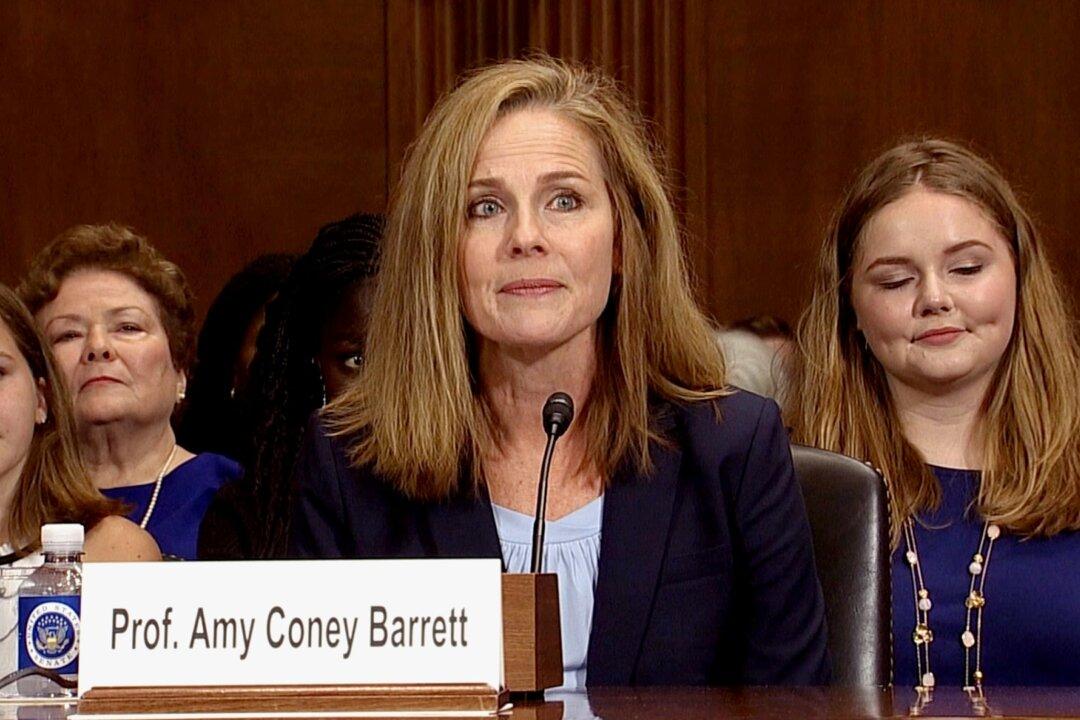Federal judge Amy Coney Barrett, who currently serves on the Chicago-based 7th Circuit Court of Appeals, is expected to be President Donald Trump’s next Supreme Court nominee.
Barrett is on a shortlist of five women the president was considering to nominate to replace late Supreme Court Justice Ruth Bader Ginsburg. Judge Barbara Lagoa of the 11th Circuit Court of Appeals has also been confirmed by Trump as another top contender.




